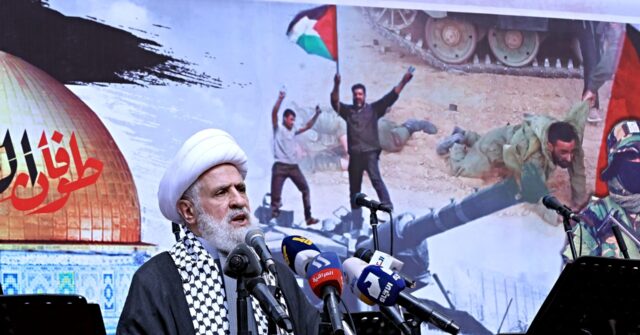Hezbollah’s ruling Shura Council has made a pivotal decision, appointing Naim Qassem as the new leader of the jihadist organization and Lebanese political party, following the unexpected demise of Hassan Nasrallah. Nasrallah’s nearly thirty-year reign came to an abrupt end on September 27 due to an Israeli airstrike that destroyed his hiding place. The organization’s initial preference for his successor, Hashem Safieddine – who was both a cousin and a lookalike of Nasrallah – was swiftly thwarted by his own death in a subsequent Israeli attack, leading to Qassem’s elevation to the leadership role on the grounds of elimination rather than preference.
Naim Qassem’s rise to the top of Hezbollah reflects both his long-standing involvement with the organization and the pressures arising from recent developments. Having joined Hezbollah shortly after its inception, Qassem has been a prominent figure within its ranks, serving as a deputy leader since 1991 and often representing the group in communications with foreign media. At 71, he brings a wealth of experience but also faces significant challenges in assuming leadership. Critics point to Qassem’s relative lack of charisma, diminished connections in political and family networks compared to his predecessors, and his lesser religious status, marked by his white turban as opposed to the black turbans worn by Nasrallah and Safieddine, who claimed direct descent from the Prophet Muhammad.
Since taking the helm, Qassem has made several public addresses, offering insights into his leadership style and strategies. In his first televised speech on October 8, he indicated a potential shift in approach towards Israel, suggesting a willingness to negotiate a ceasefire. However, he also alluded to Hezbollah’s determination to enact a “new calculation” meant to amplify their confrontations with Israeli forces. His rhetoric, while portraying a strong front, included a notably conciliatory stance on ceasefires—suggesting a departure from Hezbollah’s previously staunch positions—in what many experts view as a sign of the organization’s vulnerability following substantial losses in leadership.
The Israeli government reacted to Qassem’s ascension and his overtures for a ceasefire with skepticism, implying that such attempts might either stem from desperation or possible strategic miscalculations. They issued a warning that Qassem’s leadership could be precariously brief if his approach mirrors those of Nasrallah and Safieddine. The Israeli response articulates a clear stance: the resolution to the ongoing tension in Lebanon necessitates the disbandment of Hezbollah as a militant force, reinforcing their commitment to achieving a cessation of threats emanating from this organization.
The backdrop to these developments has been enlivened by Israel’s ongoing military operations in Lebanon, which escalated following increased Hezbollah attacks on Israeli civilians. The IDF launched targeted raids aimed at dismantling Hezbollah’s military infrastructure, asserting that their strikes would focus on strategically important areas. The Lebanese health ministry reported that these operations have resulted in numerous casualties, illustrating the immediate consequences of the heightened military engagement in the region, which has seen airstrikes across heavily militarized Hezbollah territories, such as the Bekaa Valley and Tyre.
As Hezbollah confronts the dual challenges of leadership transition and military aggression, the organization finds itself at a critical crossroads. Naim Qassem’s leadership not only symbolizes a change within Hezbollah but also poses questions about its future strategies and operational viability amid escalating conflict. While his overtures for ceasefire negotiations could signal a potential shift towards diplomacy, prevailing military actions and Israel’s adamant stance against Hezbollah will likely dictate the terms of engagement going forward. As the situation unfolds, observers will be watching closely to assess Qassem’s ability to navigate these treacherous waters and lead Hezbollah in a time of significant turmoil and uncertainty.

